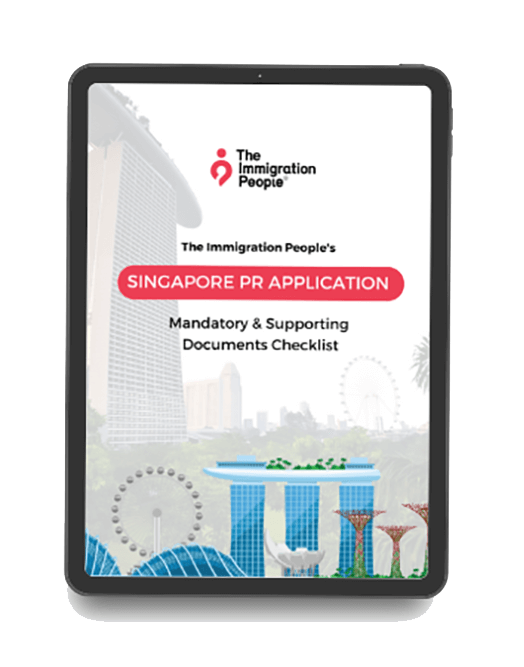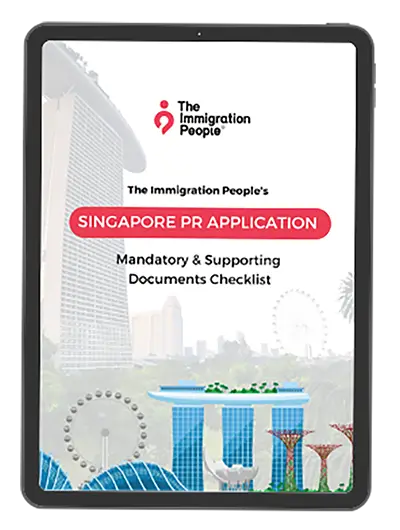For wealthy individuals looking to expand their financial assets, securing a Permanent Residence (PR) status in Singapore may be attractive. The tropical city-state boasts a strategic location at the heart of Asia. It offers investors access to a secure political and economic environment – making it an appealing choice for high-net-worth individuals and ultra-high-net-worth individuals.
Whether it is worth getting a Singapore PR for these wealthy foreign investors arises. The answer lies in the numerous benefits and opportunities of obtaining this status.
PR status extends a tapestry of advantages – prolonged visa validity, mitigated taxation on capital gains, unhampered work and business ownership, and amplified access to governmental incentives and investment schemes.
Nevertheless, prudent contemplation is essential before the Singapore PR application journey.
In this article, we'll delve into the various considerations that millionaires should consider when deciding whether to become permanent residents in Singapore.
Why Do Millionaire Choose Singapore?
Ultra-high-net-worth individuals flock to Singapore for its abundance of wealth-building opportunities. There are many reasons to choose Singapore, but here is the top few:
- Political stability and low crime rates: Singapore is a stable and prosperous country with a low crime rate. This makes it an attractive destination for people looking for a safe and secure place to live and raise a family.
- Favourable tax laws: Singapore has a favourable tax regime for businesses and individuals.
- World-class infrastructure: Singapore has excellent infrastructure, including a modern transportation system, a world-class airport, and a state-of-the-art telecommunications network. This makes it easy to do business in Singapore and to connect with the rest of the world.
- High quality of life: Singapore has a high quality of life, with excellent healthcare, education, and recreational facilities. This makes it a great place to live and work for people seeking a high standard of living.
- Proximity to major markets: Singapore is located in a strategic location in Southeast Asia, which is a rapidly growing region. This makes it an excellent base for businesses that want to access the growing markets of Southeast Asia.
Furthermore, Singapore's PR status allows millionaires to enter one of the world's most affluent societies – offering them unparalleled access to luxury lifestyle amenities and exclusive social circles. As permanent residents in the country, they can benefit from improved healthcare options and greater lifestyle flexibility.
Financial Implications of PR Status
Personal Income Tax
A significant appeal of becoming a Singapore PR is the country's competitive personal income tax rates. In Singapore, we run on a progressive tax system, with taxes ranging from 0 to 22% in 2023.
Compared to many other countries, such as the United States and New Zealand, Singapore offers lower tax rates which could lead to significant savings for high-net-worth individuals with higher annual income.
Property Tax and Inheritance Tax

Regarding property, Singapore is known for its high market value. However, the property tax rates in Singapore are relatively low, making it attractive for those intending to invest in real estate. There are also several tax reliefs and tax rebates for eligible properties that wealthy investors can leverage.
With the PR status, high-net-worth individuals will only be taxed a 5% Additional Buyer's Stamp Duty (ABSD) for their first residential property, compared to being slapped with a 60% ABSD rate as a foreigner.
Property tax rates are progressive of the property valuation.
Singapore does not impose an inheritance tax, which can be a substantial advantage for millionaires and wealthy families looking to pass on their wealth to future generations.
Central Provident Fund Contributions
Another financial aspect to consider is the Central Provident Fund (CPF). As an (employed) Singapore permanent resident, you must contribute 17% of your salary to your CPF account. This social security savings scheme funds housing, healthcare, and retirement needs.
For working professionals employed by a Singapore-based organisation, their employer would contribute 20% to their CPF account.
|
Employee's Age (Years) |
CPF Contribution Rates from 1st January 2023 For Singaporeans and PRs earning more than S$750 per month |
||
|
By employer (% of wage) |
By employee (% of wage) |
Total % of wage |
|
| 55 and below | 17% | 20% | 37% |
| > 55 to 60 | 14.5% | 15% | 29.5% |
| > 60 to 65 | 11% | 9.5% | 20.5% |
| > 65 to 70 | 8.5% | 7% | 15.5% |
| Above 70 | 7.5% | 5% | 12.5% |
While this is an additional financial obligation, the CPF contributions can also be beneficial as they ensure a healthcare and retirement safety net.
Millionaires who are relocating their business to Singapore would be considered self-employed and would not receive CPF contributions as an employee.
Getting PR Through the Global Investor Programme

For those with a robust business track record, Singapore's Global Investor Programme (GIP) offers an expedited route to permanent residency. This program not only offers PR status but also provides potential business growth in Singapore's thriving economy.
There are specific requirements and conditions to consider. Applicants must have a substantial business background and a thriving entrepreneurial history. There are three investment options that foreign investors can choose from based on their qualifying criteria.
It's a mutually beneficial arrangement. On one hand, the GIP provides wealthy individuals with a unique opportunity to gain residency status in one of Asia's most vibrant and economically stable countries.
On the other hand, Singapore benefits from an inflow of foreign capital that helps fuel its economy and encourages further development and opportunities for more job creation.
| Profile | Established Business Owners | Next Generation Business Owners | Founders of Fast Growth Companies | Family Office Principals |
|---|---|---|---|---|
| To qualify |
|
|
|
Note: Net Investible Assets include all financial assets, such as bank deposits, capital market products, collective investment schemes, premiums paid for life insurance policies and other investment products, excluding real estate. |
| Investment Options | Options A, B, C | Option C | ||
| Option A | Invest minimally S$10 million in a new business entity or in the expansion of an existing business operation in Singapore. |
| Option B | Invest S$25 million in a GIP-approved fund that invests in Singapore-based companies. |
| Option C | Invest minimally S$50 million in a new or existing Singapore-based single family office having Assets Under Management (AUM) of at least S$200 million. |
Obligations and Limitations: Understanding the Trade-offs

Permanent residency in Singapore brings about a plethora of benefits. Still, it has its set of obligations and limitations. Millionaires should take a holistic approach to consider these factors before deciding on PR status.
National Service
As previously mentioned, an essential factor is the National Service requirement. PRs who are first-generation are exempted from this requirement.
However, their male children must serve in National Service for two years once they reach 18. This obligation could substantially impact family plans and education for children. Hence it's a crucial aspect to consider.
CPF Obligations
The Central Provident Fund (CPF) is a mandatory benefit system that helps Singapore permanent residents and citizens fund their retirement, healthcare, and housing needs. Singapore PRs must contribute a percentage of their monthly income to their CPF accounts.
While this can be viewed as a financial obligation, the contributions provide substantial benefits in the long term. They accrue interest and can be used for various purposes, such as education, investment, and property purchase, ensuring a level of financial security.
Residential Property Restrictions
While there are many property investment opportunities in Singapore, permanent residents face some restrictions in residential property ownership.
PRs are allowed to own properties like bungalows, terraces, or semi-detached houses in Singapore if given special approval by the Singapore government. These restrictions are worth considering if property investment or ownership forms a part of your financial strategy.
Dual Citizenship Restrictions
Singapore does not allow dual citizenship. Should you convert your PR status to Singapore citizenship in the future, you need to renounce your current citizenship.
While PR status does not require you to give up your existing citizenship, this is a crucial consideration for those considering taking up Singapore citizenship.
Travel Advantages
As a Singapore permanent resident, you'll enjoy the ease of travel within many countries. Though it does not grant as much freedom as a Singapore passport, it still makes international travel more straightforward. It can be a significant advantage for millionaires who travel frequently.
The Singapore PR: More Than It Meets the Eye

Securing Permanent Residence in Singapore is a multi-faceted endeavour characterized by intricacies that necessitate a comprehensive comprehension of the application journey. Embarking on this path mandates adherence to a multitude of prerequisites, ranging from financial thresholds to skillset requisites, a process overseen meticulously by the Singaporean government.
Getting PR does not mean lifelong residency. The PR status does not expire, per se, but renewing your Re-Entry Permit on time is essential. Also, remember that PR is not citizenship – you remain a citizen of your home country.
PR offers benefits to ultra-high-net-worth individuals alike. But it's crucial to know the pros and cons before committing.
While restrictions exist, many also have perks to make life comfortable in Singapore.
Is it worth it? For millionaires, yes. Singapore's advantages, like its economic hub status, robust infrastructure, and low taxes, are appealing. PR brings more benefits like more accessible travel, school priority, and housing access.
However, the process is complex. There is a significant cost involved and other obligations to consider.
Deciding on PR involves considering business goals, personal dreams, and finances. Consult legal professionals and trusted Singapore immigration consultants to understand the whole picture before taking the plunge.
Frequently Asked Questions on Millionaire Considerations: It It Worth Getting a Singapore PR?
How much do I need to invest in Singapore for PR?
Under the Singapore Global Investor Programme (GIP), qualified foreign investors need to invest minimally S$10 million in a new business entity or the expansion of an existing business operation in Singapore.
There are three different investment options under the GIP.
How to get Singapore citizenship by investment?
There is no direct path to citizenship in Singapore. Only permanent residents can apply for citizenship.
As an investor, you can get permanent residency through GIP. The GIP scheme aims to attract foreign investors to invest in the Singaporean economy.
You can apply for Singapore citizenship after at least two years of holding a PR status.
How many attempts are there in Singapore PR Application?
There is an unlimited attempt to apply for Singapore PR.
So, do not get dejected if you have been rejected multiple times. You can work towards improving your profile and try again.
It is best to consult with immigration consultants to understand how to improve and maximise your PR approval chances.


